Search Results
Showing results 461 to 480 of 580

Wind Turbine
Source Institutions
Learners build a wind turbine and test it to see how much energy is created.

Motor Effect
Source Institutions
See what force a magnet has on a wire that has current running through it: will it push it, pull it, or will nothing happen? This is the foundation of a simple electric motor.

Cooling the Mummy's Tomb
Source Institutions
In this activity, learners conduct an experiment to help Pharaoh design a better insulated tomb.

Electric Gamebox Challenge
Source Institutions
In this design challenge activity, learners invent a pinball-like game where a kick stick hits a ping pong ball into a target that buzzes.
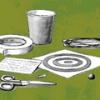
On Target
Source Institutions
In this design challenge activity, learners modify a cup so it can carry a marble down a zip line and also drop it onto a target.
Is It Possible: Estimating Measurement
Source Institutions
In this activity, learners will decide together on a question about how far, long or high the group could reach together.
Six Squares: Geometry and Design
Source Institutions
In this activity, learners take a turn contributing a closed figure made of six squares to a large grid; each must be different from all the others on the grid so far.

Glider
Source Institutions
In this activity, learners construct paper airplanes that twist and turn.
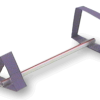
Straws and Airplanes
Source Institutions
Create airplanes from straws and geometric shapes. Test them out to see how far they can fly, or how accurately they can be aimed.

Waterproof that Roof!
Source Institutions
In this activity, learners explore how engineers have improved roofing designs and materials in order to protect the contents of buildings.

Self-Assembling Dessert Toppings
Source Institutions
This is an activity (located on page 3 of the PDF under Self-Assembly Activity) about self-assembly, the ability of molecules to assemble themselves according to certain rules.
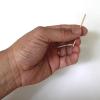
Toothpick Patterns
Source Institutions
In this hands-on activity, learners use toothpicks to build different triangles and squares and then use the toothpicks to build and solve some tricky shape puzzles.
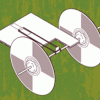
Rubber Band Car
Source Institutions
In this design challenge activity, learners build a car that can travel at least four feet using rubber band power and use the design process to debug problems.
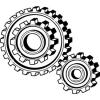
Kid Machine
Source Institutions
This activity is on page 3 (continued on page 2) of the pdf, part of the Simple Machines Discovery Box. In this fun activity, learners "create" a complex machine by simulating the parts in action.

Arctic Sea Ice
Source Institutions
In this activity, learners explore how the area of Arctic sea ice has changed over recent years. First, learners graph the area of Arctic sea ice over time from 1979 to 2007.
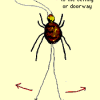
Spider Glider
Source Institutions
In this fun activity about spiders, learners build and design a spider from cardstock, straw, string, and pipe cleaners.

Make a Garbage Bag Kite
Source Institutions
Make a kite out of a garbage bag, shower curtain, painting tarp--anything light, thin, flexible and plastic!

Bouncing Balloons
Source Institutions
In this sports-themed engineering activity, learners create super bouncy balls out of balloons. Learners brainstorm, test their designs, and share results.
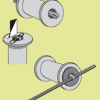
All Wound Up
Source Institutions
In this activity, learners build a racecar using only a rubber band, spool, straw, and paper clip! This racer is a classic toy that zips across a flat surface.

Scaling Cubes
Source Institutions
In this activity, learners explore scale by using building cubes to see how changing the length, width, and height of a three-dimensional object affects its surface area and its volume.
